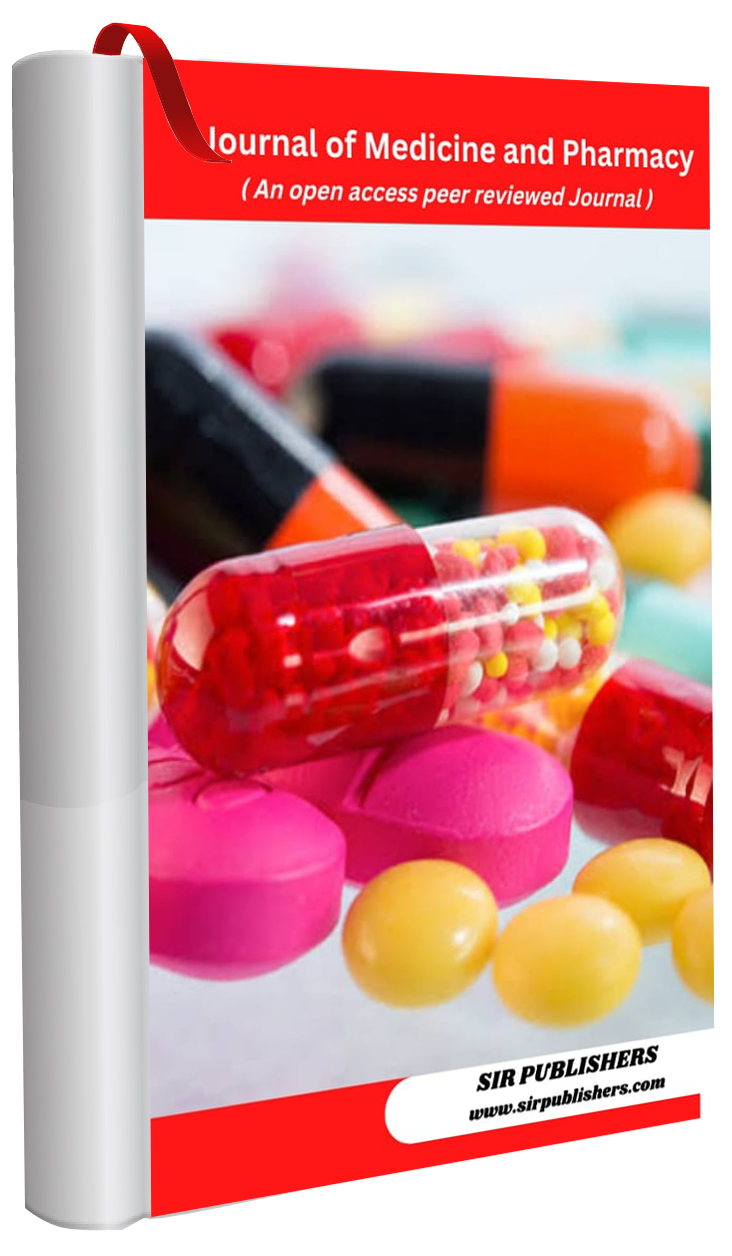DRUGS USED IN PARKINSON'S (LITERATURE REVIEW).
Abstract
Parkinson's is a progressive neurodegenerative disease characterized by tremor and bradykinesia and is one of the most common neurological disorders. Male sex and advancing age are independent risk factors and, as the population ages, is taking an increasing toll on productivity and medical resources. There are a number of other extrapyramidal conditions that can make the diagnosis challenging. Unlike other neurodegenerative diseases, idiopathic Parkinson's disease has effective treatments that mitigate symptoms. Medications can improve day-to-day function and, in cases where medication does not give a sustained benefit or has significant side effects, treatments like deep brain stimulation result in improved quality of life. Parkinson's disease represents a rapidly developing neurodegenerative condition; the increased worldwide prevalence, apart from an infectious cause, resembles many of the features commonly observed during pandemics. In most populations, 3-5% of Parkinson's disease is explained by genetic causes associated with certain Parkinson's disease genes, representing monogenic Parkinson's disease, while 90 genetic risk variants account for 16-36% of the inherited risk of non-monogenic Parkinson's disease. explains together. . Additional causal associations include having a relative with Parkinson's disease or tremors, constipation, and being a nonsmoker, each of which at least doubles the risk of Parkinson's disease. The diagnosis is clinically based; auxiliary test is reserved for people with atypical appearance. Current criteria define Parkinson's disease as the presence of bradykinesia with rest tremor, rigidity, or both. However, the clinical presentation is multifaceted and includes many non-motor symptoms. Prognostic advice is guided by knowledge of the subtypes of the disease. There is a potentially long prodromal period before clinically manifest Parkinson's disease.
References
Bloem BR, Okun MS, Klein C. Parkinson's disease. Lancet. 2021 Jun 12;397(10291):2284-2303. doi: 10.1016/S0140-6736(21)00218-X. Epub 2021 Apr 10. PMID: 33848468.
https://en.wikipedia.org/wiki/Management_of_Parkinson%27s_disease
Brocks D. R. Anticholinergic drugs used in Parkinson's disease: An overlooked class of drugs from a pharmacokinetic perspective //J Pharm Pharm Sci. – 1999. – Т. 2. – №. 2. – С. 39-46.
Deleu D., Northway M. G., Hanssens Y. Clinical pharmacokinetic and pharmacodynamic properties of drugs used in the treatment of Parkinson’s disease //Clinical pharmacokinetics. – 2002. – Т. 41. – С. 261-309.
Djanaev G. Y. et al. PHARMACOTHERAPEUTIC EFFECTIVENESS OF HERBAL MEDICINE" YAZVANOL" IN THE EXPERIMENTAL INDOMETHACINE GASTROPATY MODEL //World Bulletin of Public Health. – 2023. – Т. 21. – С. 144-147.
Джанаев Г. Ю. Уткир токсик гепатитда глицерамнинг сафро ва унинг таркибидаги моддаларнинг экскрециясига таъсирини ўрганиш. – 2020.
YU, D. G., & ALLAYEVA, M. (2022). ОЦЕНКА ЭФФЕКТИВНОСТИ НОВОГО ПРЕПАРАТА СЭЛР В ПРОФИЛАКТИКИ И ЛЕЧЕНИИ ГАСТРОПАТИЙ.
Djanaev, G. Y., Khakimov, Z. Z., Allaeva, M. J., Makhsumov Sh, M., Zaytseva, O. A., & Mamadjanova, M. A. Comparative Study of the Influence of Lesbochole. Misoprostol and Mucagen on the Gastric Mucous Barrier in Indometacin Gastropathy.
Abdel-Salam O. M. E. Drugs used to treat Parkinson's disease, present status and future directions //CNS & Neurological Disorders-Drug Targets (Formerly Current Drug Targets-CNS & Neurological Disorders). – 2008. – Т. 7. – №. 4. – С. 321-342.
Cranwell-Bruce L. A. Drugs for Parkinson's disease //MedSurg Nursing. – 2010. – Т. 19. – №. 6. – С. 347.
Korczyn A. D. Drug treatment of Parkinson's disease //Dialogues in clinical neuroscience. – 2004. – Т. 6. – №. 3. – С. 315-322.
Quinn N. Fortnightly Review: Drug treatment of Parkinson's disease //Bmj. – 1995. – Т. 310. – №. 6979. – С. 575-579.








